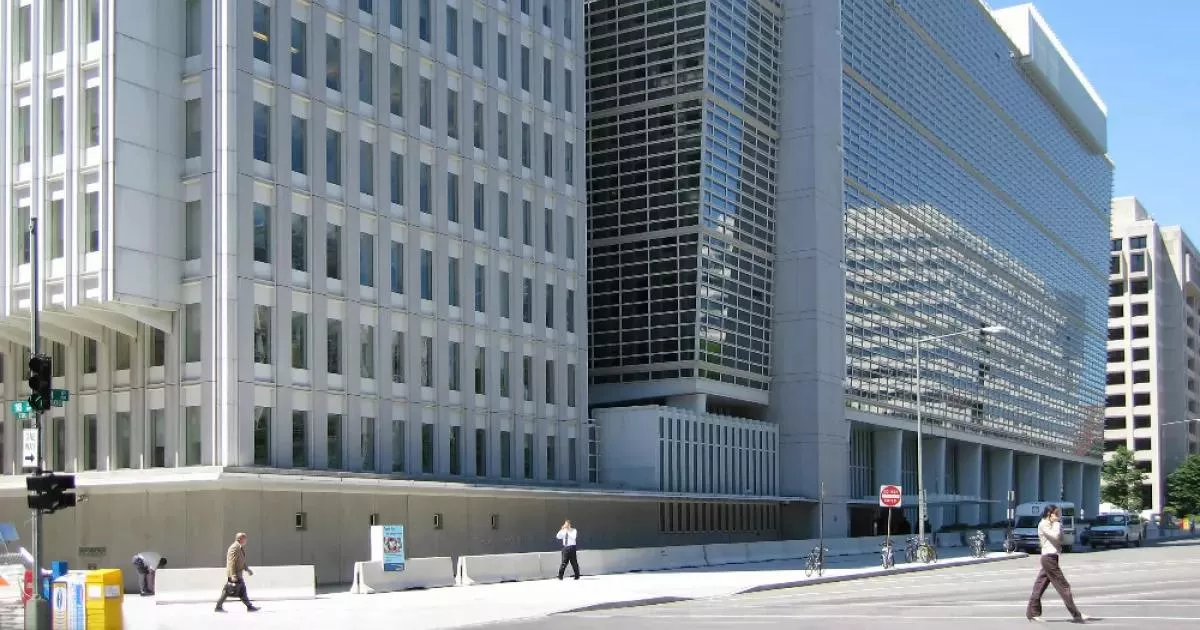The World Bank is an international financial institution offering loans and grants to low- and middle-income countries for economic development. Formed in 1944 at the Bretton Woods Conference alongside the IMF, it comprises the IBRD and IDA. Initially focused on European reconstruction, its mission evolved to poverty reduction in the developing world during the 1970s. In recent decades, the World Bank has engaged with NGOs and environmental groups, incorporating environmental and social safeguards into its loan strategy.
1944: Bretton Woods Conference
In 1944, the World Bank was created at the Bretton Woods Conference, along with the International Monetary Fund (IMF).
1947: Marshall Plan and Shift in Focus
In 1947, the Marshall Plan led to European countries receiving aid from other sources, prompting the World Bank to shift its focus to non-European allies.
1960: International Development Association Formed
In 1960, the International Development Association (IDA) was formed, providing soft loans to developing countries.
1968: Robert McNamara's Presidency
In 1968, Robert McNamara was appointed as the president of the World Bank and sought new sources of capital.
1968: Loans Earmarked for Infrastructure
Until 1968, World Bank's loans were earmarked for the construction of infrastructure works, such as seaports, highway systems, and power plants.
1974: Fiscal Conservatism
Before 1974, the reconstruction and development loans the World Bank made were relatively small and loan applications had to meet strict criteria.
1974: Focus on Basic Needs
From 1974, the World Bank concentrated on meeting the basic needs of people in the developing world.
1976: Increase in Developing World Debt
From 1976 to 1980, developing world debt rose at an average annual rate of 20% due to poverty alleviation lending.
1980: Increase in Loan Size
From 1974 to 1980, the size and number of loans to borrowers greatly increased, as loan targets expanded from infrastructure into social services and other sectors.
1980: Rise of Debt
From 1976 to 1980, developing world debt rose at an average annual rate of 20%.
1980: Alden W. Clausen appointed President
In 1980, Alden W. Clausen succeeded McNamara as president of the World Bank.
1980: World Bank Administrative Tribunal established
In 1980, the World Bank Administrative Tribunal was established to resolve disputes between the World Bank Group and its staff regarding contracts or terms of employment.
1982: Anne Krueger Appointed as Chief Economist
In 1982, Clausen replaced the bank's Chief Economist, Hollis B. Chenery, with Anne Krueger, known for her criticism of development funding.
1989: Inclusion of Environmental Groups and NGOs
Beginning in 1989, the World Bank began including environmental groups and NGOs in its loans.
1991: Protection Against Deforestation
In 1991, the World Bank announced that to protect against deforestation, especially in the Amazon, it would not finance any commercial logging or infrastructure projects that harm the environment.
December 2007: Pledge for Poorest Countries
On December 15, 2007, forty-five countries pledged US$25.1 billion in "aid for the world's poorest countries", aid that goes to the World Bank International Development Association (IDA).
November 2010: Increase in Number of Executive Directors
With the term beginning November 2010, the number of executive directors increased by one, to 25.
March 2012: Jim Yong Kim Nomination
On March 2012, Barack Obama announced that the United States would nominate Jim Yong Kim as the next president of the bank.
April 2012: Jim Yong Kim Elected President
On April 2012, Jim Yong Kim was elected as the President of the World Bank.
2012: Non-US Citizens Nominated
In 2012, for the first time, two non-US citizens were nominated as president of the World Bank.
December 2014: Subscriptions of Top Member Countries
As of December 2014, the table shows the subscriptions of the top 20 member countries of the World Bank by voting power.
March 2015: Subscriptions of Top Member Countries
As of March 2015, the table shows the subscriptions of the top 20 member countries of the World Bank by voting power.
2015: Target Date for Ozone-Depleting Chemicals Phase-Out
The World Bank targeted 2015 as the date to stop ozone-depletion damage to the Earth's atmosphere by phasing out the use of 95% of ozone-depleting chemicals.
2015: Total Lending
Total lending as of 2015 for the last 10 years through Development Policy Financing was approximately $117 billion.
2017: Jim Yong Kim Reelected
In 2017, Jim Yong Kim was reelected to a second five-year term as president of the World Bank.
October 2018: New Environmental and Social Framework
Since October 1, 2018, the World Bank implemented a new Environmental and Social Framework.
February 2019: Jim Yong Kim Resignation
In February 2019, Jim Yong Kim announced he would resign from his position as president of the World Bank.
April 2019: David Malpass Appointed
In April 2019, David Malpass replaced Kristalina Georgieva as president of the World Bank.
2020: World Bank Staff and Operations
In 2020, the World Bank had 12,300 full-time staff and operated in 145 countries.
2020: World Bank Commitments
In 2020, the World Bank's total commitments amounted to USD 77.1 billion. It had 12,300 full-time staff, and it operated in 145 countries.
2020: World Bank Commitments and Projects
In 2020, the World Bank's total commitments amounted to USD 77.1 billion. World Bank projects cover a range of areas from building schools to fighting disease, providing water and electricity, and environmental protection.
2021: Loans and Assistance
In the 2021 fiscal year, the World Bank provided around $98.83 billion in loans and assistance to developing and transition countries.
2022: World Bank Structure
As of 2022, the World Bank is governed by a president, 25 executive directors, and 29 vice presidents, with 189 member countries in IBRD and 175 in IDA.
May 2023: Uganda enacts anti-homosexuality act
In May 2023, Uganda enacted an anti-homosexuality act. This act led to the World Bank suspending new loans to Uganda in August 2023 because it contradicts its core values on human rights. The United States also imposed sanctions against Uganda because of the anti-homosexuality law.
June 2023: Ajay Banga's Term Began
On June 2, 2023, Ajay Banga's term as president of the World Bank began. He is the first Indian American to lead the bank and is expected to support climate action and help low-income countries.
August 2023: World Bank suspends new loans to Uganda
In August 2023, the World Bank declared a suspension of new loans to Uganda. This decision was influenced by a recently enacted anti-homosexuality act in May 2023, which the World Bank views as conflicting with its core values concerning human rights. The United States also imposed sanctions against Uganda due to this law. Uganda has criticized the World Bank's action as unjust and hypocritical.
2023: Ajay Banga appointed as President
In 2023, Ajay Banga became the World Bank President. He is known to support climate action.
2023: Criticism of David Malpass
In 2023, David Malpass faced criticism for appearing to question the role of humans in climate change.
Mentioned in this timeline

Donald John Trump is an American politician media personality and...

Barack Obama the th U S President - was the...

Joe Biden is an American politician who served as the...
Saudi Arabia officially the Kingdom of Saudi Arabia KSA is...
Azerbaijan is a transcontinental and landlocked country located in the...
China officially the People's Republic of China is an East...
Trending

39 minutes ago Wall Street and Defense Stocks React to US Attacks on Iran, Lockheed Martin involved
40 minutes ago Columbus City Schools face budget issues and educational future is being tracked.
2 hours ago Indiana Weather: Snow overnight, then rain, storms, and a colder March start.
3 hours ago Winter Weather Advisory: Rain, Snow, and Wintry Mix Expected Overnight, Causing Travel Concerns
4 hours ago Turkey's economic growth slows in 2025; faces major shocks, expert warns.

4 hours ago Teodora Kostovi?, 18, Dominates in Antalya, Achieving Career-Best Ranking After defeating Bulgarian player.
Popular

Jesse Jackson is an American civil rights activist politician and...

Hillary Diane Rodham Clinton is a prominent American politician lawyer...

XXXTentacion born Jahseh Dwayne Ricardo Onfroy was a controversial yet...

Jim Carrey is a Canadian-American actor and comedian celebrated for...

Kashyap Pramod Patel is an American lawyer who became the...

Michael Joseph Jackson the King of Pop was a highly...
